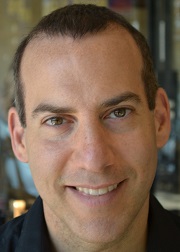I wish I had followed this advice years ago.
I would have gotten a better jumpstart on my pursuit of happiness.
After many years as a psychologist committed to making New Yorkers’ lives happier, I’ve arrived at the conclusion that the single best piece of advice for finding greater happiness is…
Make a LIFE-LONG commitment to PERSONAL GROWTH and let this commitment serve as your guide when you feel lost or uncertain.
Another way to say this is…When in doubt, choose the path toward building character and skills.
We often don’t realize that a decision we made is the “character-building” option until we think about it in hindsight. In the moment, the choice that promotes the most personal growth can feel painful, unthinkable or pointless.
“Short-term pain, long-term gain” is not necessarily the motto we need to follow. In fact, choosing the path of personal growth can criss-cross with the path of immediate gratification.
I would argue, though, that the immediate gratification often arrives after powerful resistance is overcome at the start of a new personal initiative. So at first it feels like pulling teeth, but very quickly the pain turns to an endorphin rush or a sense of personal control or well-being, or both.
For example, you might decide to finally start exercising after a long period of avoidance. You’re embarrassed, sore, and doubtful during your first few workouts, but positive thoughts and feelings kick in very quickly once you experience good feedback or any sense of personal gain.
[bctt tweet=”Make a life-long commitment to personal growth and let this commitment serve as your guide when you feel lost or uncertain. ” via=”no”]The commitment is to personal growth should be life-long because we must acknowledge that what makes us happy changes over time and therefore requires frequent updating in the form of new personal goals once the old goals are either achieved or no longer relevant.
Once we stop striving for personal growth, we have less access to happiness and fewer life lessons to reflect on.
Can we be TOO committed to our happiness? Yes, absolutely! It’s necessary to allow yourself to take your foot off the gas and just coast along with no expectations for growth or personal achievement. If every action in life became a personal goal, then we would put ourselves in danger of forgetting how to JUST LIVE and enjoy the moment.
(To learn more about being too committed to happiness, click here.)
Sometimes it’s necessary for us to purposely make mistakes, take risks, and behave in a way that goes against our goals just because we feel like it. Eventually, the rebellion ends and we must recommit to our personal goals and follow up with action.
Why Is this Good Advice?
Similar to motivation, happiness comes after you’ve honored your commitment.
Helen Keller summed up the relationship between happiness and commitment in the following statement:
“Many persons have a wrong idea of what constitutes true happiness. It is not attained through self- gratification but through fidelity to a worthy purpose.”
Let that worthy purpose be to live a happier life. Create goals so that you have something concrete to judge your actions against. Accept that you’ll never be perfect at anything.
The happiness is located in the striving itself…not for perfection, but for personal development.
People who make it a priority to strive for self-improvement tend to attract positive people and events into their lives.
People who don’t care about personal growth tend to lack direction and focus in life. Sustained happiness is less available to them. They feed on fleeting moments of happiness. They miss out on sustained happiness gleaned from a sense of accomplishment, purpose and connection to others.
Let’s Look at Someone Else to Understand Yourself Better
Think of a friend or family member who doesn’t seem to strive for personal growth. Chances are that this person’s personality can be summed up by at least a few of the following traits:
- the bitter and resentful type
- rarely takes personal responsibility and often blames others for his or her mistakes
- shows minimal learning from mistakes
- has unreasonably high expectations of others
- has a tendency to live in the past
- feels depressed and defeated easily
- has an unrealistic sense of personal strengths and weaknesses
- has a poor understanding of how his or her behavior impacts others
- lacks a sense of purpose and direction in life
It’s so much easier to see these traits in someone else than in yourself. Think of what this person could achieve by taking my one piece of advice and running with it.
In the world of Western psychology, we throw around the term “personality disorder” to refer to people who lack conscious awareness of how their actions affect others. I’ve found that, on many occasions, people with personality disorders lack a commitment to personal growth and therefore experience less sustained happiness. The exception to this would be people with an achievement-oriented, narcissistic personality who may find happiness through the accomplishment and power they feel in their careers.
What If These Traits Describe Me?
If you believe that these traits describe you well, then try to take the following steps:
1) Seek out the support of a friend, colleague or family member who inspires you. Pick someone who seems committed to his or her personal growth.
2) Ask him or her to give you honest feedback about how you present with regard to these traits. If this is too scary for you, then skip this recommendation and ask this person to help you to set and check in with you on personal goals.
[bctt tweet=”Once we stop striving for personal growth, we have less access to happiness and we learn less from our inevitable mistakes. ” via=”no”]The Muscle of Taking Responsibility
Your success with my advice depends on your willingness to take responsibility for your actions.
What does taking responsibility look like?
When you mess up, fall short of a goal or you decide that you’ve failed, acknowledge it, take responsibility, don’t blame others for your mistakes, clean it up in any way possible, and get back on your horse and move forward. Recommit to personal growth and the value of life lessons and keep going.
Please do share your opinions or any feedback you have on what I’ve just said.
Sources:




